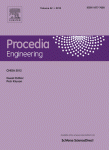 Authors: M. ATTARAKIH¹, S. AL-ZYOD¹, M. ABU-KHADER², H. J. BART³
Authors: M. ATTARAKIH¹, S. AL-ZYOD¹, M. ABU-KHADER², H. J. BART³
Affiliations: ¹The University of Jordan, Faculty of Engineering & Technology, Department of Chemical Engineering, 11942 Amman, Jordan; ²Al-Balqa Applied University, Faculty of Eng. Tech. Chem. Eng. Dept., POB 15008, 11134 Amman, Jordan; ³Chair of Separation Science and Technology, TU Kaiserslautern P.O. Box 3049 – 67653 Kaiserslautern, Germany
Reference: Attarakih, M., Al-Zyod, S., Abu-Khader, M., & Bart, H. J. (2012). PPBLAB: A new multivariate population balance environment for particulate system modelling and simulation. In Procedia Engineering (Vol. 42, pp. 1445–1462). Elsevier Ltd.
Abstract: “This work presents a new windows-based MATLAB program, which is called PPBLAB (Particulate Population Balance Laboratory) for modelling and numerical simulation of particulate systems. As a first step, liquid-liquid extraction columns are modelled using the population balance equation as a mathematical framework. Up to date population balance models and solvers are incorporated. The discretization of the spatial domain is based on the finite volume method with flux vector splitting. A strongly stable semi-implicit first order time integration scheme is used to resolve such a large and stiff ODE system. The MATLAB GUI is used to make PPBLAB a user friendly program, which allows the user to define and simulate liquid extraction columns. A thermodynamics package TEA-COCO, which obtained from CAPE-OPEN, is linked to PPBLAB. Therefore, a special interface is designed for the purpose of data exchange between PPBLAB and CAPE-OPEN TEA tool…”
DOI: 10.1016/j.proeng.2012.07.538
Comments: the authors establish a link between PPBLab, a Windows-based MATLAB program, and TEA, the CAPE-OPEN thermodynamic server distributed by AmsterCHEM as part of COCO.
